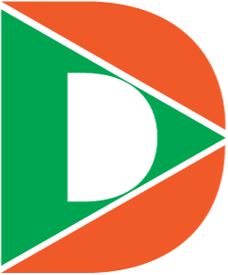SEO for Blogs: Unlocking the Power of Success
Introduction
Nowadays, SEO for Blogs having a successful blog involves more than just producing excellent material. Ensuring that your blog is both easily accessed by search engines and engaging to your intended audience is part of it. The secret to doing this is search engine optimization, or SEO. In this post, we will examine tactics, approaches, and best practices related to blog SEO that will help your blog succeed in the fiercely competitive online environment.
What is SEO for Blogs?
The practice of improving your blog’s content to appear higher in search engine results pages is known as search engine optimization for blogs (SERPs). It entails a variety of off-page and on-page strategies that raise your blog’s profile and visibility. You may build authority in your niche, engage readers, and get more organic traffic by concentrating on SEO.
The Fundamentals of SEO for Blogs
Keyword Research
Keyword research is the foundation of effective blog SEO. Determine the pertinent terms and expressions your target market uses when searching. Finding the proper keywords is made easier with the help of tools like SEMrush and Google Keyword Planner.
On-Page SEO
Optimizing your blog’s individual pages is known as on-page SEO. This includes optimizing titles, headings, meta descriptions, and content, which collectively enhance your blog’s chances of ranking higher in search results.
Off-Page SEO
Off-page SEO focuses on activities outside your blog, such as backlink building, social media promotion, and influencer partnerships. These efforts build your blog’s authority and credibility.
High-Quality Content
Creating valuable, informative, and engaging content is essential. Blog posts should provide solutions, insights, and answers to your readers’ questions. Google gives better results to content that meets its standards.
On-Page Optimization
Optimize your blog posts for on-page elements such as meta titles, meta descriptions, and headings. Properly format your content with H1, H2, and H3 tags, making it easier for search engines to understand and index.
Site Speed and User Experience
Faster-loading sites tend to rank higher on search engines. Additionally, a seamless user experience keeps visitors engaged. Optimize images, reduce unnecessary plugins, and prioritize a user-friendly layout. A user-friendly blog is favored by both readers and search engines. Ensure your blog is mobile-responsive, loads quickly, and provides an intuitive navigation experience.
SEO-Friendly URLs
Optimize your blog’s URLs by making them descriptive and containing relevant keywords. Clean and concise URLs improve both the user experience and search engine rankings.
Image Optimization
Don’t overlook images; they play a crucial role in SEO. Use descriptive alt tags and compress images to ensure quick loading times.
Internal Linking
Integrate internal links within your blog posts to guide readers to related content on your site. This not only boosts engagement but also helps search engines crawl and index your pages.
Regularly Update and Refresh Content
Search engines love fresh content. Regularly update and refresh your blog posts to keep them relevant in the eyes of search engines.
Advanced Blog SEO Strategies
Long-Form Content
Google often ranks longer, in-depth content higher. Aim for comprehensive blog posts that cover a topic thoroughly and provide added value to your readers.
Backlink Building
Earning high-quality backlinks from reputable websites can significantly boost your blog’s authority. Focus on natural, white-hat link-building strategies.
Social Media Promotion
Leverage the power of social media to promote your blog content. Engaging with your audience on platforms like Facebook, Twitter, and Instagram can drive more traffic.
Measuring and Analyzing SEO Success
Google Analytics
Utilize Google Analytics to track your blog’s performance. Monitor key metrics such as organic traffic, bounce rate, and conversion rates to assess the effectiveness of your SEO efforts.
SEO Tools
Invest in reliable SEO tools like Moz, Ahrefs, or SEMrush to perform regular site audits, keyword tracking, and competitor analysis.
Common SEO Mistakes to Avoid
Keyword Stuffing
Overloading your content with keywords can lead to penalization by search engines. Focus on natural, relevant keyword usage.
Neglecting Mobile Optimization
Given the increasing use of mobile devices, it’s crucial to ensure your blog is mobile-responsive. Neglecting this aspect can result in decreased rankings.
Ignoring Analytics
Failing to analyze your blog’s performance and adjust your strategy accordingly can hinder your SEO progress.
Conclusion
The key to success in the blogging industry is SEO for blogs. You may enhance your blog’s exposure, generate organic traffic, and position yourself as an authority in your niche by adhering to the basic and advanced tactics outlined above and avoiding common pitfalls. Thus, keep in mind that producing excellent content is just half the fight; the other half is search engine optimization.
FAQs
Q: What does blog SEO mean?
Ans: The technique of improving your blog’s content for search engines to increase its exposure and rating in search engine results pages (SERPs) is known as SEO for blogs.
Q: Why is keyword research crucial to the SEO of blogs?
Ans: By identifying the terms and phrases your target audience uses when searching, keyword research enables you to produce content that speaks to their interests.
Q: How can I assess whether my blog’s SEO efforts are working?
Ans: With tools like Google Analytics, you can examine metrics like organic traffic, bounce rate, and conversion rates to determine the effectiveness of your SEO efforts.
Q: What typical SEO errors ought to be avoided by bloggers?
Ans: Keyword stuffing, disregarding analytics, and failing to optimize for mobile devices are common SEO blunders.
Q: Is backlink building crucial for a blog’s search engine optimization?
Ans: Yes, you may greatly increase your blog’s authority and search engine rankings by obtaining high-quality backlinks from reliable websites.

As a DIGITALTECHSIDE author, the majority of our articles have been focused on technology, blogging, business, lifestyle, social media, web design and development, e-commerce, money, health, education, entertainment, SEO, travel, and sports.
Contact us at digitaltechside@gmail.com if you have questions of anything.




